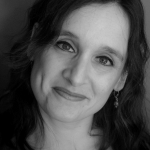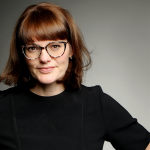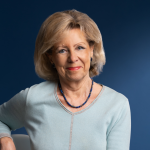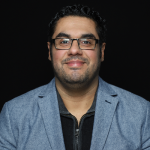An update on the Collective Fund for Climate and Ecological…
Against this backdrop of escalating climate events, FGM is announcing the initiatives we’ll be supporting…
Our teams at FGM, Centraide of Greater Montreal and the Institut du Québec wish to thank the volunteer members of the Vital Signs report on housing working group, as well as the representatives of civil society who agreed to share their insights with us. Thanks to their contribution, this report is more thorough and inclusive of all perspectives on housing, notably from the community and academic sectors. Learn more about them and about their work below.
 Maude Beausoleil
Maude BeausoleilTrained in the social sciences, Maude Beausoleil has been a research specialist and analyst at Centraide of Greater Montréal for 10 years. In that role, she has developed extensive knowledge of the realities, actors and challenges that are specific to Greater Montreal. Prior to that, she worked on several projects at the Direction régionale de santé publique de Montréal, most notably on the issues of housing and food insecurity. As well, during her time there she organized a sustainable development program that supported neighbourhood initiatives in Montreal, in collaboration with actors from the community and municipal sectors. Living conditions, poverty, inequality and the future of Montreal have all been at the heart of her professional commitments for more than 20 years.
 Marie-Andrée Farmer
Marie-Andrée FarmerMarie-Andrée has worked in the philanthropic sector for 15 years, primarily managing granting programs that bring support to the community. She is particularly interested in how social issues evolve, and in the types of cooperation needed to offer appropriated support to those impacted. She is attentive to community needs and values her interactions with the actors on the ground who are so essential to this ecosystem. Marie-Andrée holds a degree from UQÀM in business administration and tourism, and has also studied the social responsibility of organizations at UQÀM.
 Annick Germain
Annick GermainAnnick Germain, is a sociologist and full research professor at the Urbanisation Culture Société Research Centre of the Institut national de la recherche scientifique (INRS). Her work focuses on housing, public spaces, and immigration in Montreal. She heads the INRS’s Urban Studies program.
 Renaud Goyer
Renaud GoyerRenaud Goyer is a professor in the Sociology department at Université de Montreal since over 12 years. He is also the author of numerous writings on the housing situation in Quebec, particularly addressing social inequalities.
 Xavier Leloup
Xavier LeloupXavier Leloup is a professor/researcher at the INRS’s Urbanisation Culture Société Research Centre. His work focuses on a variety of issues relating to housing and living conditions. Over time, he has examined public social housing, the social interventions carried out therein, the housing conditions of immigrants and the neighbourhoods they reside in, interethnic cohabitation in neighbourhoods and the evolution of inequalities in income in Montreal. He is a member of the national research partnership People, Places, Policies, Prospects: Affordable Rental Housing for Those in Greatest Need and is Managing Editor of the journal Lien social et Politiques.
 Éric Michaud
Éric MichaudÉric Michaud is a coordinator for the Comité logement Ville-Marie, a downtown Montreal organization that has worked for the collective defence of tenants for about 20 years. He also organizes the housing roundtable of Habiter Ville-Marie, which has a mission to stimulate, support abd promote the development of social housing, in the Ville-Marie borough, prioritizing solutions that meet the needs of local populations. In these roles, he has collaborated on multiple research studies on housing and has frequently intervened in public consultations on urban planning or development in downtown Montreal.
 Marco Monzon
Marco MonzonThe holder of a degree in political science from UQAM, Marco Monzon has worked for more than 10 a years in the area of right to housing and the promotion of social housing. He is currently Comité logement South Shore’s Director General and is actively involved on boards of directors of organizations that develop and manage social housing. Prior to that, he worked for many years in front-line and second line services that intervene with men were experiencing homelessness.
 Mario Régis
Mario RégisMario Régis has been with Centraide of Greater Montréal since 2013. He is currently a part of the Executive Management team, as Senior Director. Before joining Centraide, Mario Régis headed the a Regroupement des Centres de la petite enfance de the island of Montreal during the first seven years that this vital element of public policy was implemented. He then headed the 1, 2, 3 GO! Centre, and deployed activities on behalf of the Avenir d’enfants organization. His professional path led him to focus on the community mobilization, philanthropic practices and social policies that foster equal access to opportunity. Mario holds a Master’s in social administration from the École de service social de l’Université́ de Montréal.
La Fondation du Grand Montréal, Centraide du Grand Montréal et l’Institut du Québec souhaitent également remercier Catherine Lussier du Front d’action populaire en réaménagement urbain (FRAPRU) ainsi que Marc-André Plante et Rodolphe Parent de la Corporation des propriétaires immobiliers du Québec (CORPIQ) pour les entretiens qu’ils nous ont accordés afin d’offrir leur point de vue et leur expertise concernant certains groupes moins bien représentés dans les données statistiques.
L’Institut du Québec souhaite également remercier particulièrement Lily Ibrahim, conseillère, Systèmes d’information géographique (SIG) chez Centraide du Grand Montréal pour sa collaboration à la collecte des données ci-après présentées.
This edition of Vital Signs is intended to report on the accessibility and affordability of housing situation in Greater Montreal. The most vulnerable sectors and groups have also been looked at in more depth.
Against this backdrop of escalating climate events, FGM is announcing the initiatives we’ll be supporting…
The 2025-2026 edition of the Foundation of Greater Montréal (FGM)'s Collective Fund for Climate and…
Karel Mayrand: As I leave office, "I want to thank every person who gravitates around the great community…